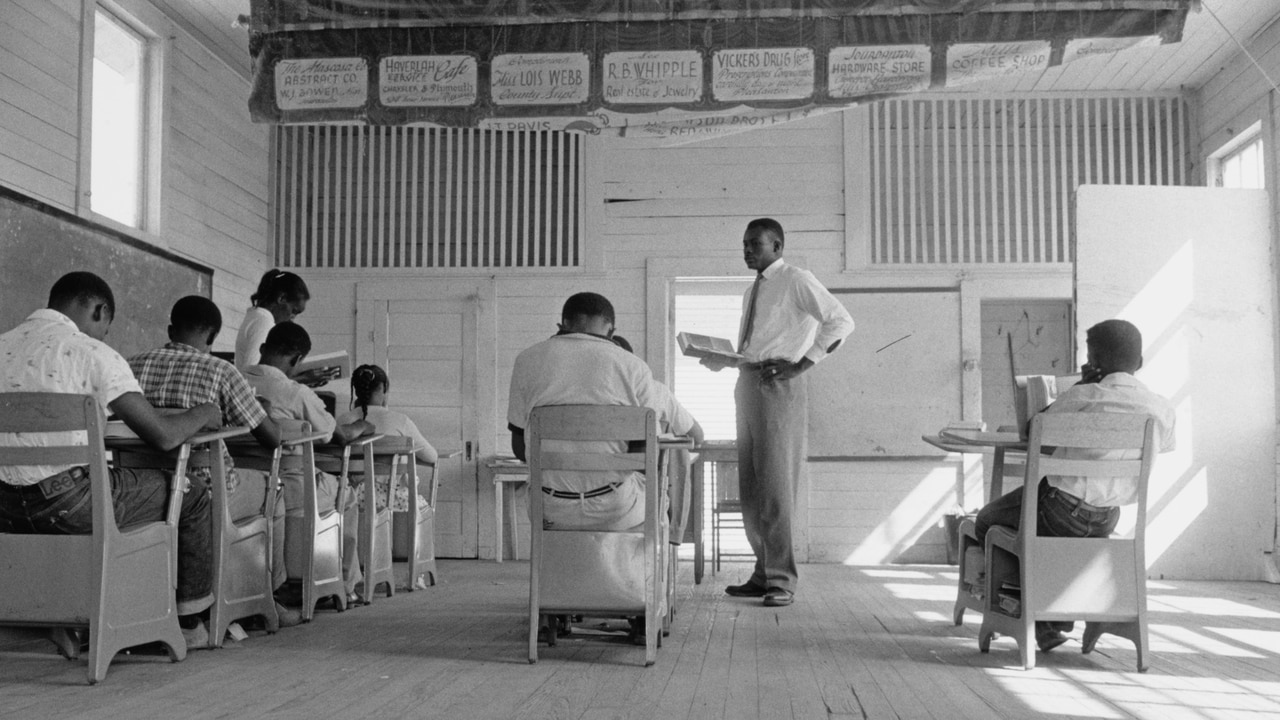Why we need Black educators now more than ever
Picture it. A five-year-old little girl neatly places an assortment of stuffed animals, baby dolls and her most cherished Barbie on the floor, grabs a chair that’s taller than her from her grandma’s kitchen table and sits with her favorite picture book to read her “students” a story. This was the first time I imagined myself as a teacher.
Growing up, I loved school and reading and learning. Perhaps it was instilled in me by my college-educated grandmother who always reminded me of how hard her daddy worked to get her to college. I understood early on education was not just important, but necessary.
My love for school extended to many of my teachers. Most notably, my 7th grade writing teacher. She was my first ever Black teacher, young and maybe only a few years into her teaching career. She nurtured my love of reading and writing. And she held our class, which was all Black, to high standards. She believed in us. After my experience with her, I knew I wanted to follow in her footsteps. And I did in my own ways.
In education, representation matters but it is certainly not enough. It was not just that I saw myself reflected in my teacher, it was also that I knew my teacher saw herself in me. I knew that in that class of all Black students, she saw herself in all of us. That is the type of love and dedication that all students, especially Black students, deserve.
A schoolteacher stands with an open book in his hand as his students sit at their desks while one student stands to read in an all-Black one-room school in Pleasanton, Texas, 1957.
In the early 20th century, Black educators were pillars in the Black community. And many of them opened their own schools to remedy the fact that Black schools were not granted the same resources as white schools. Honoring that legacy that persists today, Black Joy spoke with educators about why they chose the field, how they resist the current attacks on Black History curriculum and advice they have for future educators.
What called you to become an educator?
Jasmine Wigginton, Out-of-School Time Manager: I knew I wanted to be an educator in my senior year of high school. [My class] went over to the nearby middle school to mentor and tutor 6th graders. I was paired with a young Black girl . . . and we worked through her incomplete math, reading, and other materials. While working together she mentioned that she felt “stupid” . . . at the end of our time together, she was excited and felt proud. After that day, I knew what I wanted to do. I wanted to make children, and in particular Black children, feel seen and heard.
Brian Foster, Associate Professor of Sociology: Remembering how so many folks—from high school teachers to college professors—impacted my life and professional trajectory…while many people see education as the end goal of teaching. I do not. For me, the end goal is curiosity and inspiration. I want to help students find that thing that makes their insides come alive, that’ll make them want to read until they can’t read no more, that’ll make them turn over every stone looking for whatever calms that curiosity.”
Given the ongoing attempts to suppress Black History in the classrooms across this country, how do you navigate this issue as a Black educator?
Briana Hall, Career and Technical Education Director: History cannot be suppressed, nor can you depend on one entity to be responsible for teaching things that are significant or important. If Black History is not taught as a part of the curriculum, then get creative and be an innovator! For example, Career Tech Month is recognized in February. February is also Black History Month. Well, Black History is not officially a part of our CTE curriculum. However, as the instructional leader, my charge to my staff was to have students research about the contributions Blacks have made to career tech.”
Eric Nelson, 6th Grade Middle School Counselor: As a Black educator, I pride myself on ensuring that I, first, know my own history before trying to enlighten others. I encourage conversations with students to engage their thinking. Each morning I get ‘A Moment in Black History’ on my phone and I share that with my students.
What advice would you give to aspiring educators?
JW: You will feel like you’re failing, [and] that’s okay. It means you care. Our students need people who care. Never let anything come between you and that caring because so often it is more important than any content you will teach.
EN: Stay the course. Know that every day will not be perfect. . . also, you can’t pour from an empty cup so make time to take care of yourself.”
BH: Know your “why.” Love children and have a strong desire to inspire others. Be intentional about building relationships not only with your students, but with your colleagues and your administrators. Being in education can be challenging. However, knowing that you have the capacity to change the trajectory of someone’s life: priceless.
BF: When you get where you are going, make sure you find and build community—which I define as a group of people joined in some type of love, mutual respect, and the shared understanding that, one, no individual has everything but that every individual has something, and two, that if we start with a type of love and mutual respect for one another, we will freely offer our something, knowing that when the community pools all of its “somethings” together, then we will have everything that we need…
